Dismantling Unjust Structures – Fighting for the Minimum Wage
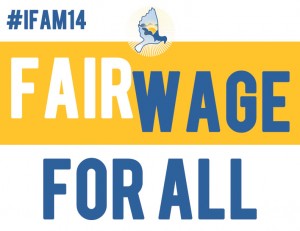
BY ANTHONY GIANCATARINO | February 5, 2014
In 1891, Pope Leo XIII stated that every worker has a right to sufficient wages in order to provide for his/(her) family. Forty years later, Pope Pius XI reiterated the dignity of a worker calling for a living wage. Then Pope John XXIII proclaimed that a living wage is a justice issue, while Pope John Paul II called a living wage essential to the legitimacy of an economic system. And most recently, Pope Francis spoke out against trickle-down economics that continues to marginalize people.
Needless to say, raising the wage of workers has been on the advocacy agenda for quite some time among Catholics.
The exciting thing is that the politics are finally catching up!
In 2013, fast food workers garnered unprecedented attention for multi-city protests against low wages at major food chains. This past November, residents in Seatac, Washington voted to raise the wage to $15/hour. Only 35 days into 2014 and 25 states have minimum wage legislation or ballot initiatives up for debate; President Obama has an executive order to pay federal contract workers a minimum wage of $10.10/hour.
And we are called to join the movement to make that happen. Fighting for the minimum wage is one step forward in answering the charge from Fr. Pedro Arrupe, SJ to dismantle all of the “unjust structures in our society.”
It’s true, raising the wage won’t roll back all of the injustice we face, but it is one step in transforming the barriers of economic injustice into opportunities of equity and fairness. Raising the minimum wage can lift people out of poverty; help families afford healthy foods; and build opportunities for economic justice.
Lifting people out of poverty. Nearly 1 in 2 children who are born in poverty are likely to experience poverty for half their childhood. And further research shows that social mobility between classes is at its worst in history, particularly for poor Black families, who are nearly twice as likely to remain living in poor neighborhoods compared to poor White families. A lot of programs are needed to address poverty, including public investments in jobs, education, and infrastructure. But “nearly six million workers would be lifted out of poverty if the minimum wage were raised [from $7.25] to $10.10.” That is big news – especially for children who live with parents who earn the minimum wage.
Helping families afford basic goods, such as food. When I was 9 years old, a loaf of bread averaged 70 cents. Tipped workers (such as waiters/waitresses) received $2.13/hour. Today, at 31, a loaf of bread now costs an average of $2.89. Yet tipped workers still receive $2.13/hour! Food prices have nearly risen three-fold over the last ten years, yet the minimum wage for non-tipped workers has only risen by 1/3rd ($5.15 to $7.25) over that same time. Now, Congress cut nearly 8 billion from SNAP (food stamp program). These cuts combined with a rather stagnant wage have led to an increased food burden on families – who no longer can afford the healthy foods to feed their families. Raising wages, and tying it to inflation, can help families afford healthy food.
Building opportunities for economic justice. Low wages are one of the reasons why income inequality and the racial wealth gap are at record worsts. People looking for work often find the fastest growing job opportunities are low-skill, service-sector jobs such as retail, food service, and home health aides (all jobs that are predominantly held by people of color). This would not be such a concern if wages kept pace with worker productivity and value. But that is not the case. If workers were treated with dignity and paid for the value of their labor, the minimum wage would be close to $22 per hour (and that is much closer to a living wage that we should demand!). Raising wages both recognizes the value of work and also ensures that workers in the fastest growing occupations won’t have to struggle to make ends meet in an unfair economic system.
So what can we do about it? We can use our Ignatian values of contemplative action. We can learn and act.
We can learn. There are plenty of resources to learn about the details of raising the wage and what it means for everyday Americans. Organizations such as the Jesuit National Advocacy Office, Network Lobby, Restaurant Opportunities Center, Raise the Wage, and Institute for Policy Studies have stories, facts, and details that can help us be more abreast of minimum wage policy.
We can advocate. We can call our Congressperson and state lawmakers to demand that they raise the minimum wage, including for tipped workers. We can ask they change the 1938 Fair Labor Standards Act that exempts over 2.6 million for minimum wage laws such as farmworkers and home healthcare aides, so ensure that everyone is treated with dignity.
We can vote with our feet. While congressional action is one step, we can also make decisions to live differently in our personal lives. We can choose to support businesses that treat their workers with respect, dignity, and fair pay and send a message to businesses that won’t. For example, we can eat out at High Road restaurants where restaurant workers are given paid sick leave, fair wages and opportunities to advance. Or we can shop from B corporations, companies that care for people and the planet, for our goods.
Raising the minimum wage may not solve all of our problems. But it certainly creates opportunities for transformative change. So as we enter into the Ignatian Family Advocacy month, we can learn about fair wages, advocate for change, and make conscious decisions that help us be better men and women for others.
Anthony is a father of two girls, Anna and Ella, and lives in Philadelphia with his wife Kate. He is currently a fellow working at the intersection of community, racial justice, and a new energy economy. Anthony is a 2004 alum of the University of Scranton, where he studied Theology and Political Science.

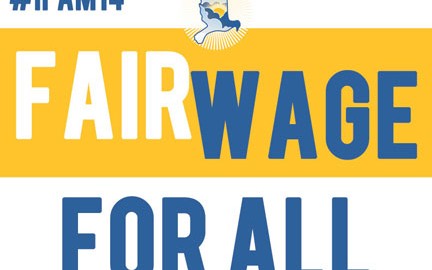

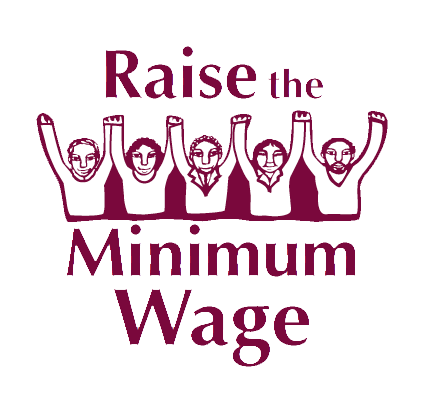
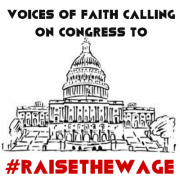

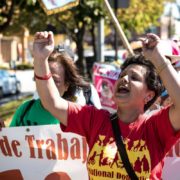




Leave a Reply
Want to join the discussion?Feel free to contribute!